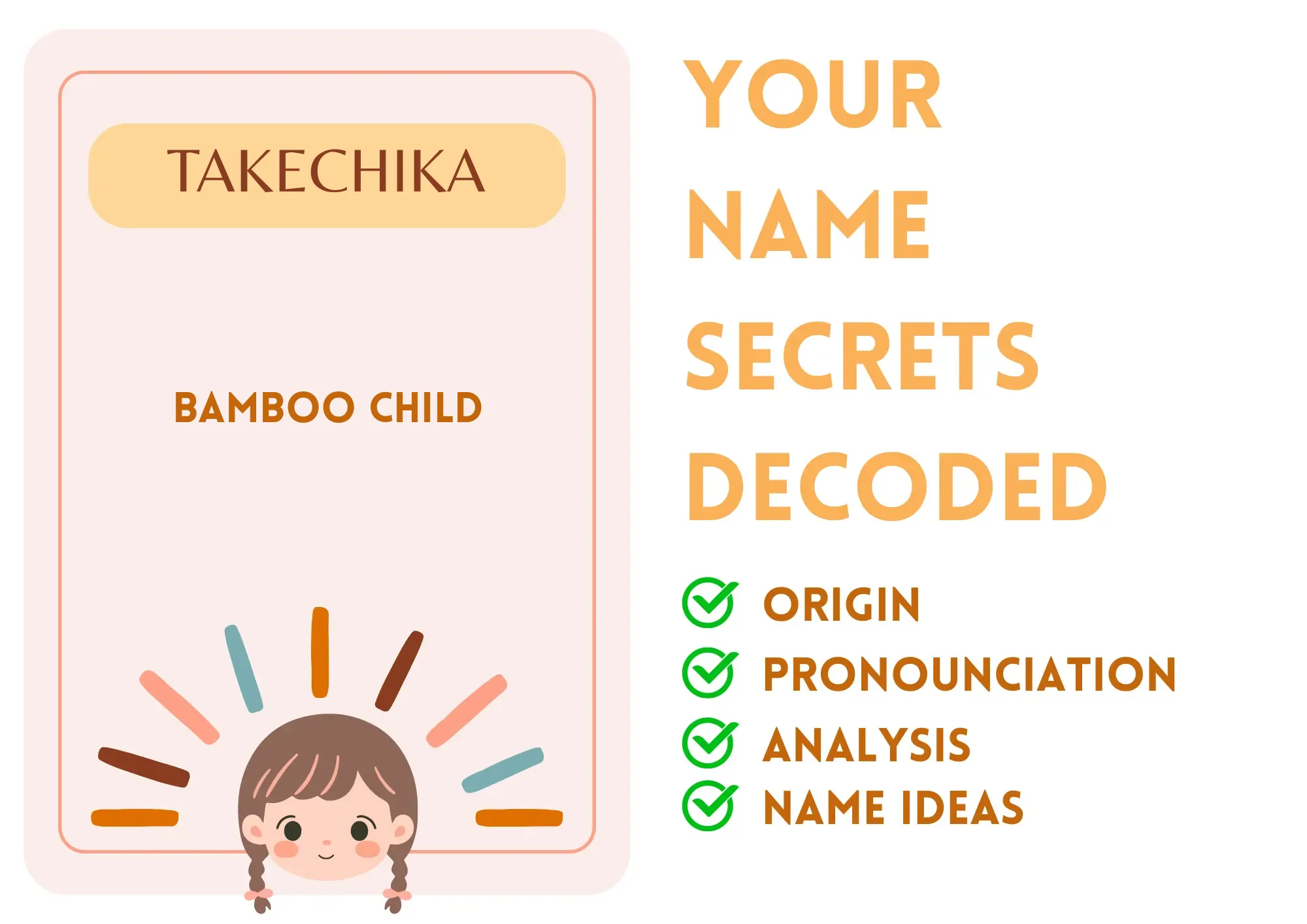
Takechika
Takechika is a beautiful and culturally rich name of Japanese origin, meaning 'bamboo child' or 'child of bamboo.' It is a feminine name that embodies the resilience and strength of bamboo, which is a significant plant in Japanese culture, symbolizing flexibility and endurance. The name Takechika is not widely used but holds charm and uniqueness, making it appealing to parents looking for a special name.
In popular culture, names inspired by nature, such as Takechika, are often appreciated for their connection to the environment and cultural heritage. People tend to feel positive about this name, associating it with grace, natural beauty, and strength.
Basic Information
Gender: Girl
Sounds Like: Tah-keh-chee-kah
Pronunciation Explanation: The name is pronounced with emphasis evenly across all syllables: 'Tah', 'keh', 'chee', 'kah.'
Summary and Meaning
Meaning: bamboo child
Origin: The name Takechika has its roots in Japan, drawing from the Japanese language and cultural significance of bamboo.
Usage: Takechika is primarily a feminine name, resonating with feminine qualities of gentleness, grace, and resilience.
Name Number (Chaldean)
Name Number (Pythagorean)
Popularity (Global Rank)
Overall: 834989
Girls:
Most Popular in
Religious and Cultural Significance
Religion: Shinto
Background: In Shinto, bamboo is revered and symbolizes purity, strength, and good fortune, often found in various rituals and ceremonies.
Cultural Significance: Bamboo plays a vital role in Japanese culture as a symbol of prosperity and hope. The name Takechika reflects this cultural connection and appreciation.
Historical Significance: The concept of bamboo is deeply entrenched in Japanese history and philosophy, representing resilience against adversity, which contributes to the historical significance of the name Takechika.
Popular Culture
Literature and Mythology: While there are no prominent literary references to Takechika specifically, bamboo is often featured in Japanese folklore and literature.
Movies and Television: Characters embodying attributes of bamboo or nature-related qualities can be symbolically linked to names like Takechika, though specific references are scarce.
Feelings and Perceptions
Perception: Takechika is perceived positively, often associated with natural beauty and a connection to cultural roots. It evokes feelings of strength and gentleness.
Positive Feelings: Unique, elegant, nature-inspired, graceful, resilient.
Negative Feelings: May be perceived as unusual or complex in some cultures outside of Japan.
Practical Considerations
Ease of Writing and Calling: Takechika is moderately easy to write and pronounce for those familiar with Japanese phonetics. It consists of four syllables, which may pose a challenge for some, but is phonetically straightforward.
Common Typos and Misspellings: Takechika,Takechikaah,Takechikah,Takechika
Common Nicknames: Take,Chika,Kiki
Takechika Popularity
Takechika Usage and Popularity By Country
| Country | Rank (Overall) |
|---|---|
| Japan | 10451 |
Takechika Usage and Popularity By City
| City | Rank (Overall) |
|---|
Compatibility Analysis
Famous Persons Named Takechika
No results found for Takechika.
Related Names
Similar Sounding Names:
Takara,Takeshi,Taka,Chika